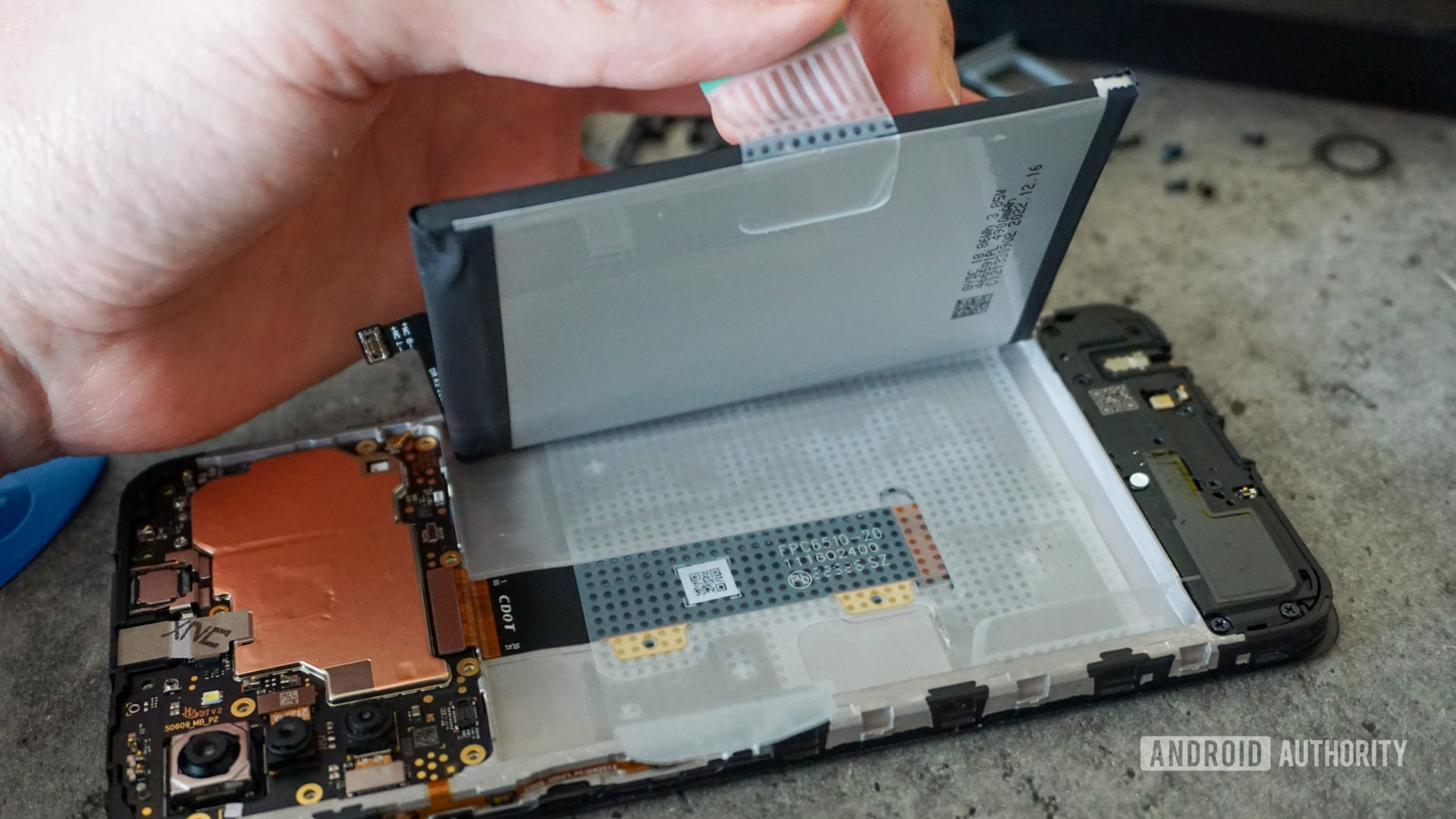Affiliate links on Android Authority may earn us a commission. Learn more.
Sweeping new law will force replaceable batteries on smartphones
Published onJune 15, 2023

- European Parliament passed a change to a law that will force replaceable batteries on all gadgets, including smartphones.
- By law, phones in the EU by 2027 will need to have batteries you can replace with no tools, which means no adhesives.
- This could fundamentally change how smartphones are designed.
Way back in the day, most smartphones had batteries you could easily swap. You didn’t need tools or a heat gun, either: you could just pop off the back, take the battery out, put in a new one, and go on with your day. It was common to see people with a spare battery in their pockets. Nowadays, thanks to most smartphones being two chunks of glass glued to a metal frame, this is no longer possible.
However, European Parliament may have just brought those days back. In a sweeping new change to a previous law, MEPs voted 587 to nine to force all gadgets to have easily replaceable batteries. When we say “easily,” we mean it: MEPs say this should not require special tools, which means no adhesives.
Without adhesives, OEMs from Apple to Google to Samsung will need to drastically change how they design phones. The “glass sandwich” design method would almost certainly need to stop unless companies could devise a way to keep the parts connected without adhesives.
Obviously, this law only affects the EU, but OEMs wouldn’t likely design phones specifically for the EU. Just like with an EU law forcing Apple to bring USB-C to iPhones (which will likely happen this year), this EU-specific law will have ripples across the world.
Thankfully, OEMs don’t need to change anything quite yet. The law goes into effect 3.5 years from today, which means early 2027. It’s possible the EU could extend that time limit, though, should OEMs need more time.
The law approved today is mostly an attempt to cut down on environmental waste. The MEPs make it very clear that they want the tech industry to be more responsible about batteries. It also includes statutes related to recyclability, minimum levels of precious metals that must be obtained from recycled batteries, and stricter waste collection targets.